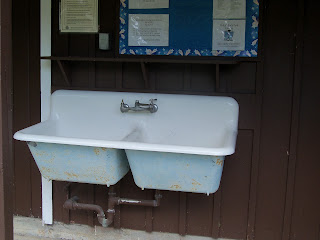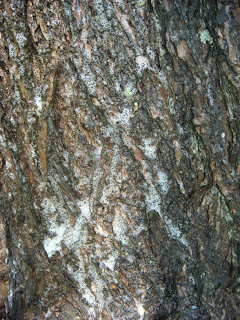Who gets dish duty?
Camping at a Vermont State Park is a great way to enjoy the peace and quiet of nature away from the constant distraction of electronics but as you will find out, there are certain things that just don’t come as easily as they do at home, dishwashing is one of those things. Here are a few tips to make sure your dishes are clean and the environment is safe.
It may seem so much easier to buy paper products and not worry about washing all those dishes but even 100% compostable products aren’t as environmentally friendly as they seem. Unless the state park you are visiting has a composting pile, all your trash is going to be mixed in with regular trash and thrown into landfills. When thrown into landfills, biodegradable and compostable products aren’t exposed to the necessary air, moisture and sunlight to break them down.
Depending on the type of camper you are, you may or may not want to bring dishes for every purpose. If you have a small vehicle and are looking to save space, think about what you really need and what could be used for multiple purposes. Mugs are also great for eating cereal and soup out of and sporks are a great way to not have to bring both spoon and forks. Camping trays and plates with dividers are a great way to keep food separated for those picky eaters and prevent the usage of multiple plates. (See helpful links at the bottom) But for those looking to cook a great meal for many, bringing your dishes and silverware from your home is great for those money savers or you can buy a set for camping that you don’t have to unpack every time you get back from vacation.
Depending on the type of camper you are, you may or may not want to bring dishes for every purpose. If you have a small vehicle and are looking to save space, think about what you really need and what could be used for multiple purposes. Mugs are also great for eating cereal and soup out of and sporks are a great way to not have to bring both spoon and forks. Camping trays and plates with dividers are a great way to keep food separated for those picky eaters and prevent the usage of multiple plates. (See helpful links at the bottom) But for those looking to cook a great meal for many, bringing your dishes and silverware from your home is great for those money savers or you can buy a set for camping that you don’t have to unpack every time you get back from vacation.
Here is a step by step description of one of many great ways to wash your dishes while camping:
- Two tubs: A washing tub, and a cold or hot rinse tub. Most tubs are stackable and great for storing your dishes in during travel.
- Biodegradable dishwashing soap
- Drying rags or mesh bag
- Strainer
- Note: Water is available at water spigots located every few sites throughout the park. To keep the park clean and the water spigots available for other people to use, please wash your dishes at your campsite and not at the water spigot.
Boil the water while you are cooking if there is a burner free or on the fire while you eat. It is best to wash your dishes right after you are done eating so that the food does not cool and harden onto your dishes. To make sure you have the right amount of water, fill up the tubs (one if you are doing a cold rinse, both if you prefer a hot rinse) you will be using for hot water with water from the campground’s water spigots. Fill it up slightly more than you think you will need so that when it boils down, you won’t end up with less than you need.
2. Scrape as much of the leftover food particles off the dishes and into a garbage bag before washing them, the water will stay cleaner longer. To prevent animals from getting into your trash throw it into the designated dumpsters before you go to bed every night and store food in closed plastic containers and put them away in your car at the end of the evening.
3. Pour hot water into the first two tubs and cold water in the last. Squirt a couple droplets of biodegradable dishwashing soap into the first hot water tub.
4. Scrub the dishes in the washing tub and then dip them into the hot (or cold) water rinse to ensure all the soap is rinsed off, use tongs if the water is too hot. Wash pots last because they tend to be the dirtiest and will be heated up during the next use, killing any bacteria left after washing anyway.
5. If you have a drying rack or a mesh bag that you can hang, air drying your dishes is the best way to avoid drying your dishes with a dirty dish rag. You may also lay a large towel on top of your picnic table for your dishes to air dry as well. If you are going to dry your dishes using rags, make sure to bring a couple so that you are not using the same one more than a few times.
6. Before dumping the water out put it through a strainer or mesh to get out any leftover food particles to prevent unwanted visitors. Most likely you will be dumping your dirty dish water in the leaf litter of the woods. Make sure to be approximately 200 yards away from any water source and as far away from nearby campsites as possible. You do not want the dirty water leaking into any rivers or lakes nearby and if it does attract animals, it is far enough away from yours and others’ campsite that they do not bother you. To protect the environment it is a great idea to use biodegradable dish soap since it breaks down over time, lessening your environmental footprint. It breaks down from contact with soil so it’s still not safe to dump your dish water in or near natural water sources.



.jpg)
.jpg)
Comments
Post a Comment
Feel free to let us know what you think.